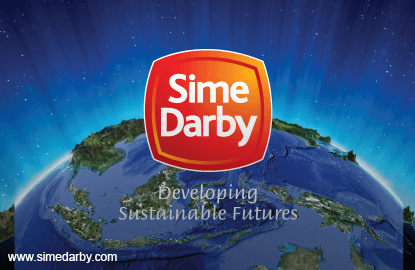
This article first appeared in The Edge Financial Daily, on April 27, 2016.
 Sime Darby Bhd
Sime Darby Bhd
(April 26, RM 7.73)
Maintain underperform with a higher target price (TP) of RM7.75: We recently attended Sime Darby’s plantation segment’s first commercial field planting of its new genome select (GS) seeds in Dusun Durian Estate in Banting, Selangor.
According to management, the GS seedlings are screened for high yield with a potential of producing more than 11 tonnes of crude palm oil per hectare (CPO/ha) (45 tonnes of fresh fruit bunches (FFB)/ha), which is at least 15% above its current best planting material, Calix 600.
We gather that Sime Darby targets to ramp up its GS screening capacity to fully meet its Malaysian replanting requirement of 5% of planted area annually, which translates into about 15,000 ha/year by 2023.
We are long-term positive on Sime Darby’s research and development efforts, which should lead to continuous yield improvements over the long run. Management mentioned that for the typical breeding cycle, production grows 8% to 10% every 10 to 14 years. However, using the GS material, Sime expects production to grow by 16% in the next production cycle. Based on this, we estimate a compound annual growth rate (CAGR) of 0.7% in a normal breeding cycle, compared with a CAGR of 1.2% with the GS material.
Assuming Sime Darby replants 5% of its planted area as well as plants 2,000ha of new area annually, we expect the new planting material to yield 7.4 million tonnes of FFB/year in Malaysia by 2030, compared with ordinary materials, which will likely yield seven million tonnes of FFB/year.
While we are positive on the plantation segment’s long-term prospects, we note that last year’s dry weather negatively impacted FFB production throughout the region, including Sime, which has exposure in all key palm oil-producing regions.
In the financial year ending Dec 31, 2016 and 2017 estimate (FY16E-FY17E), we expect FFB growth of -10% and - 1% due to the lagged impact of dry weather. Meanwhile, other segments are likely to see a weak near-term performance as well. Property and motor segments are currently seeing weak domestic demand due to tighter lending policies, while the industrial segment’s upside is limited given weak commodity prices and slower Chinese growth.
We maintain “underperform” with a higher TP of RM7.75 based on sum-of-parts with an unchanged plantation segment price-earnings ratio (PER) of 24 times. Our plantation segment’s target PER is in line with other large-cap planters. We update our TP to RM7.75 (from RM7.15) as we roll forward our valuation base year to FY17E for earnings per share (EPS) of 33.3 sen. Our TP implies a forward PER of 23.3 times, or slightly below -0.5 standard deviation valuation. We believe this is fair, given Sime’s short-term negative FFB growth prospect, as well as its weaker non-plantation segments’ outlook. — Kenanga Research, April 26